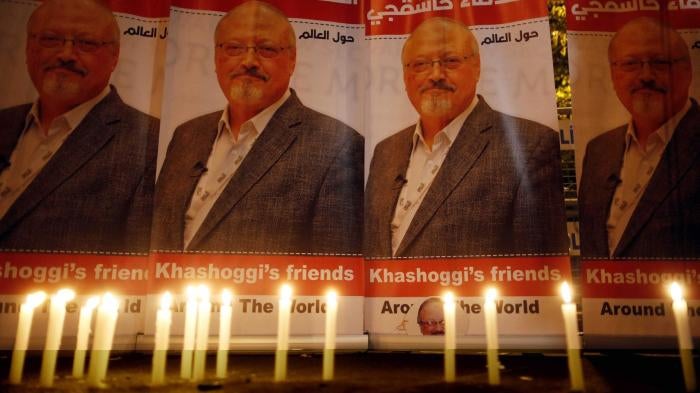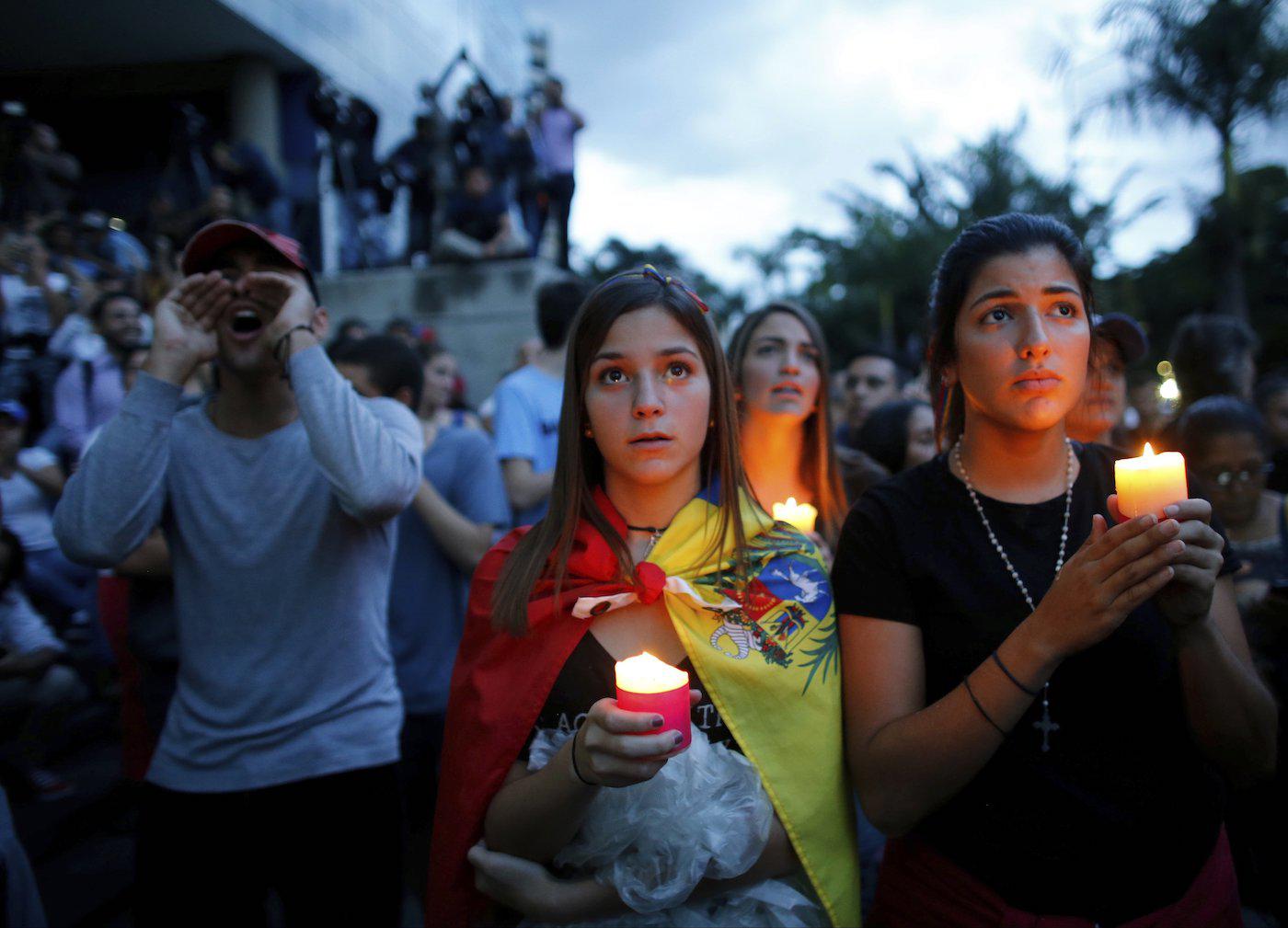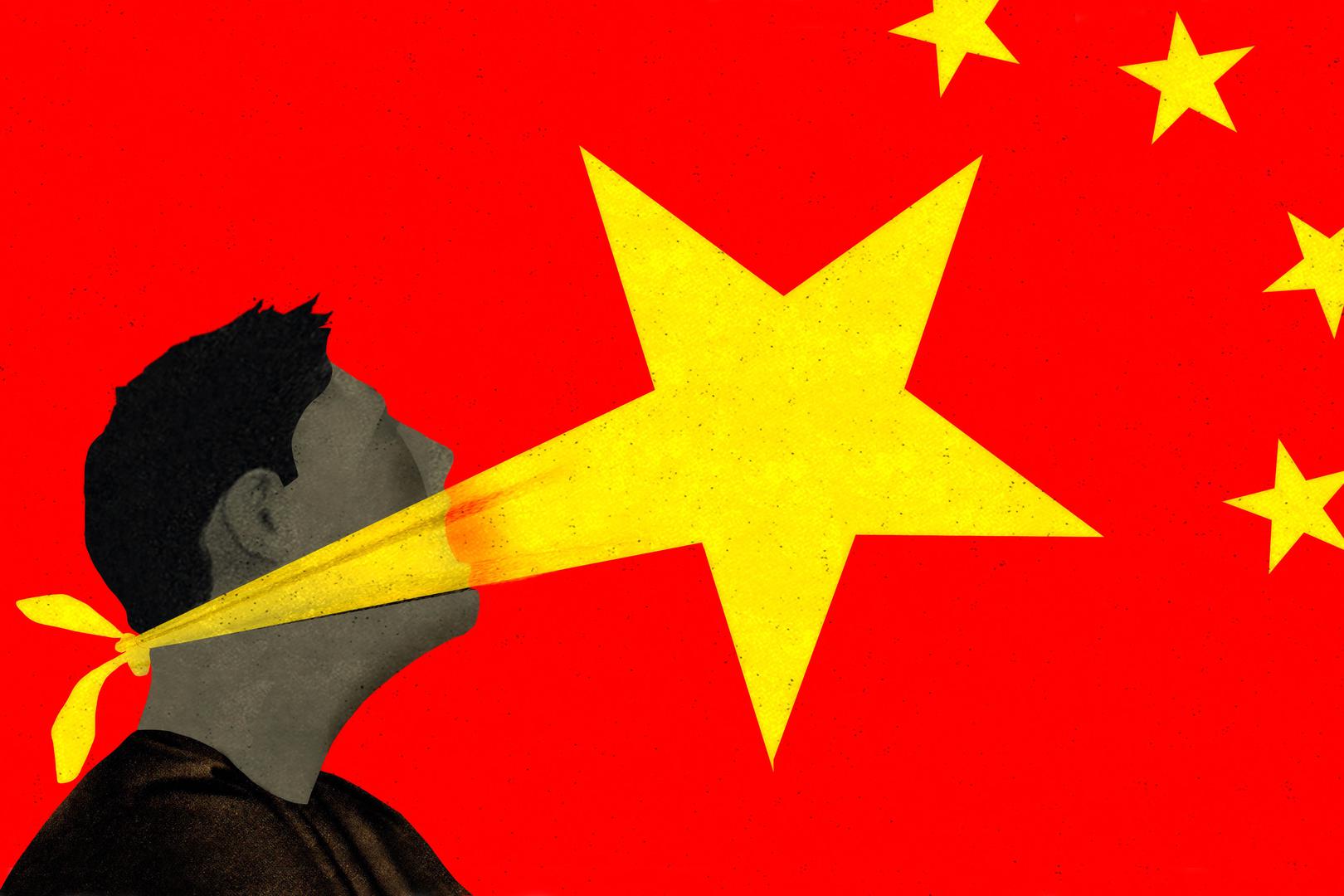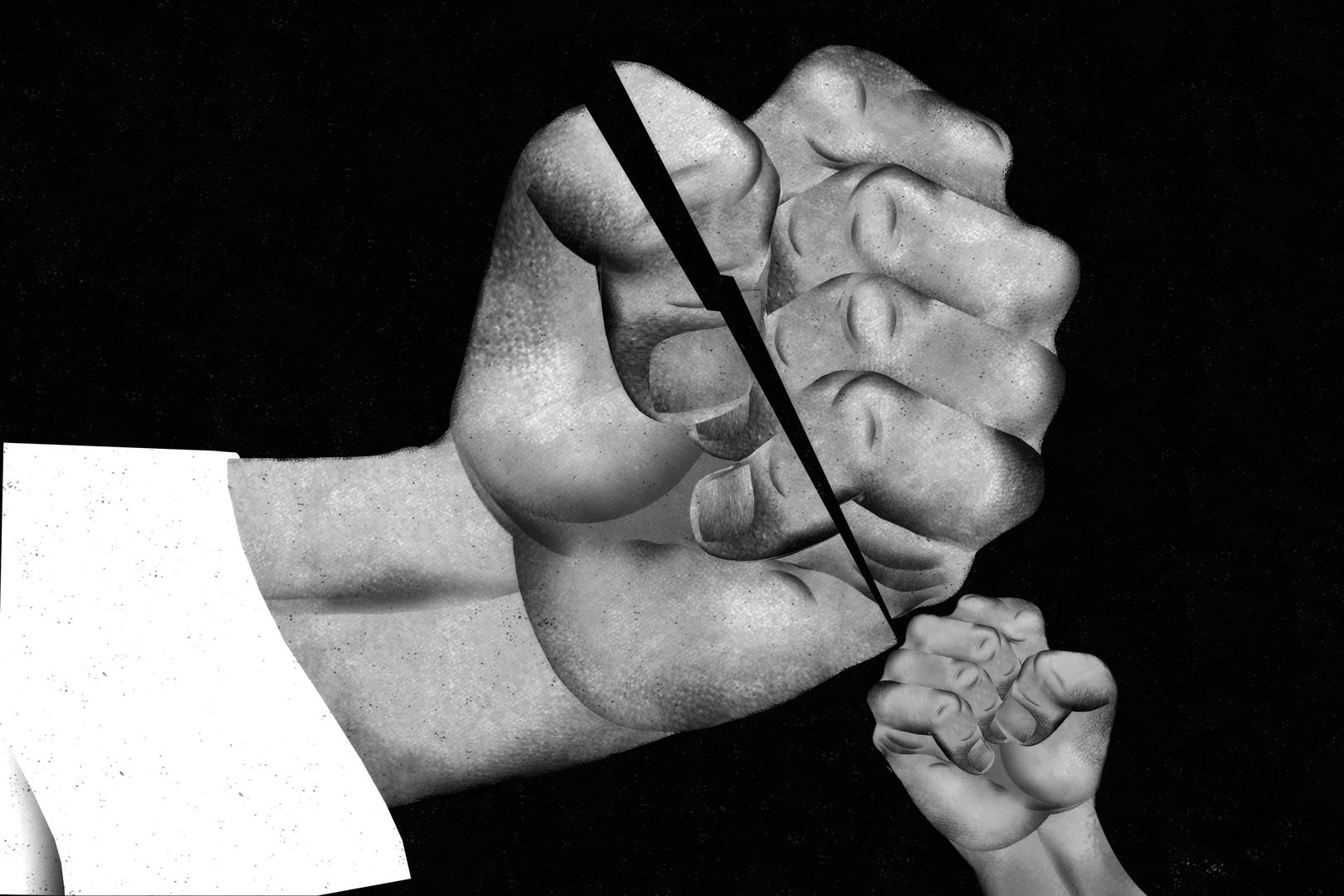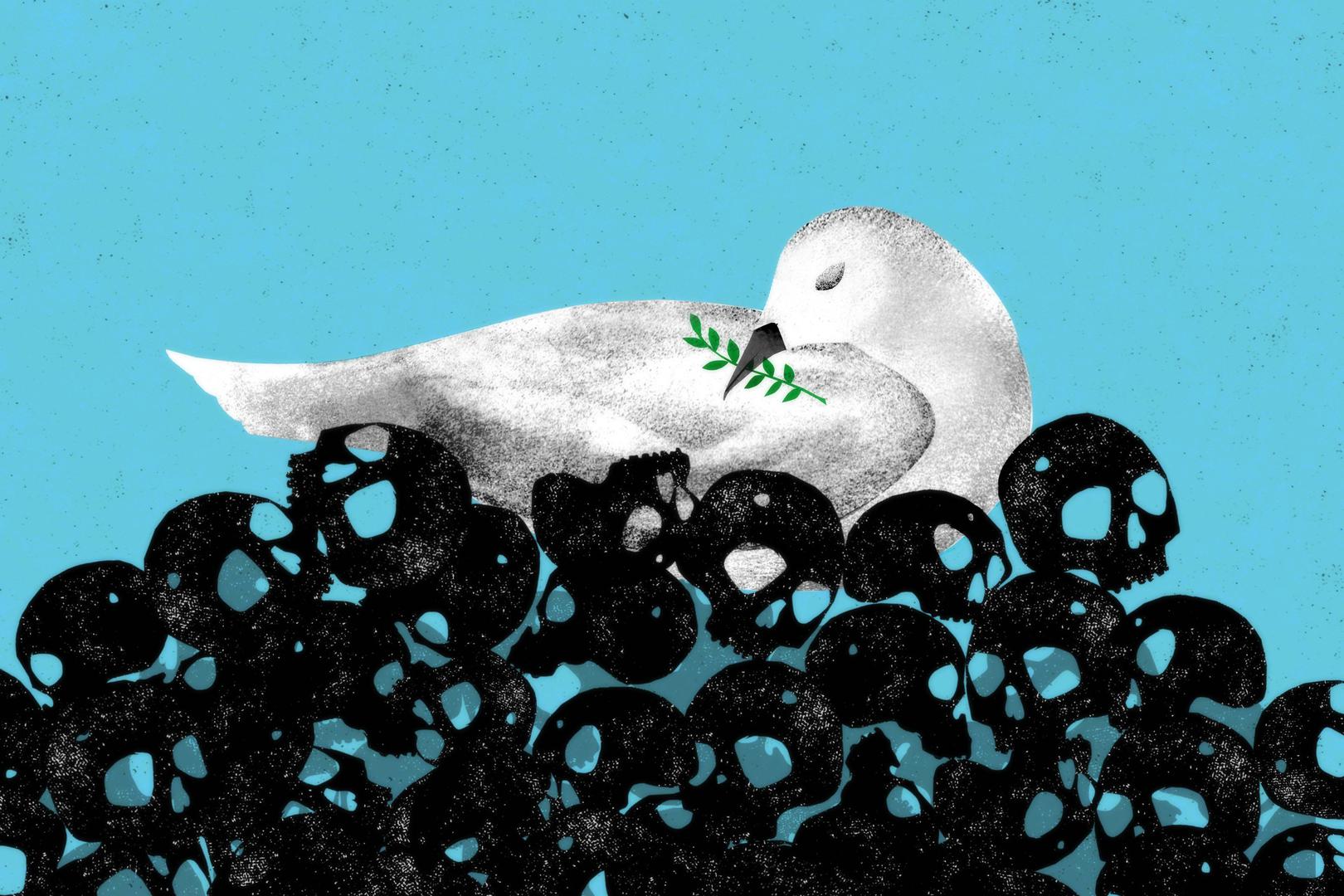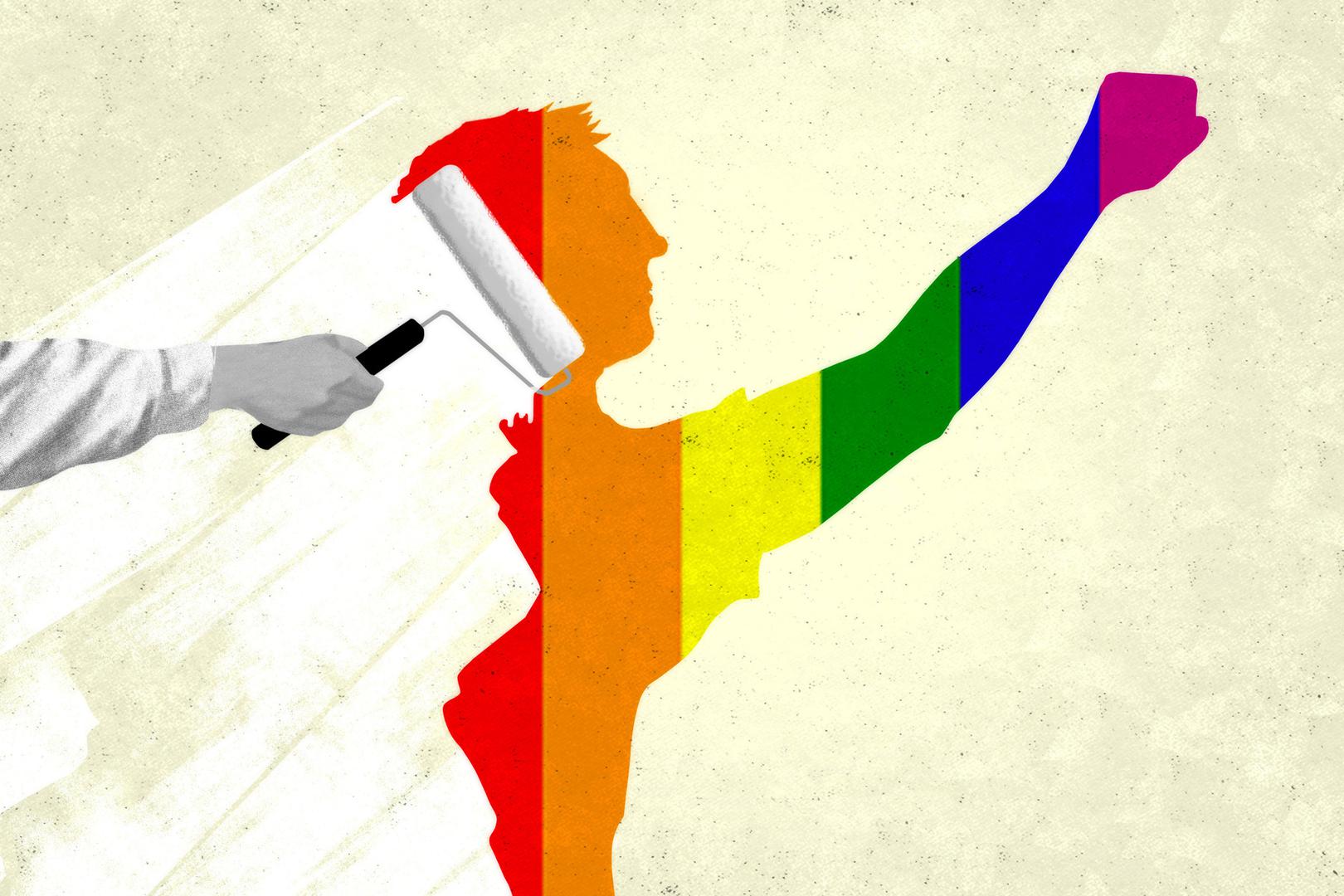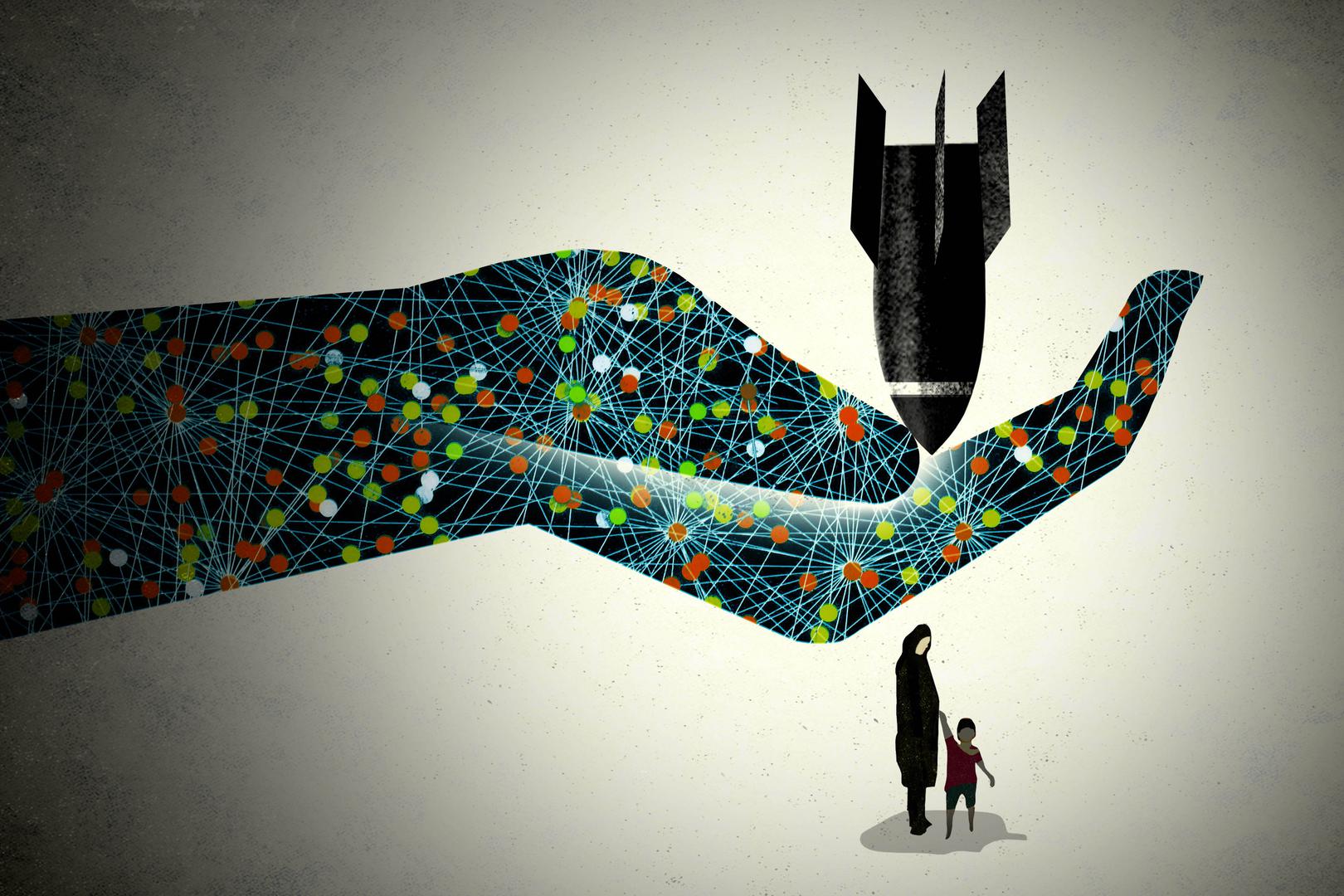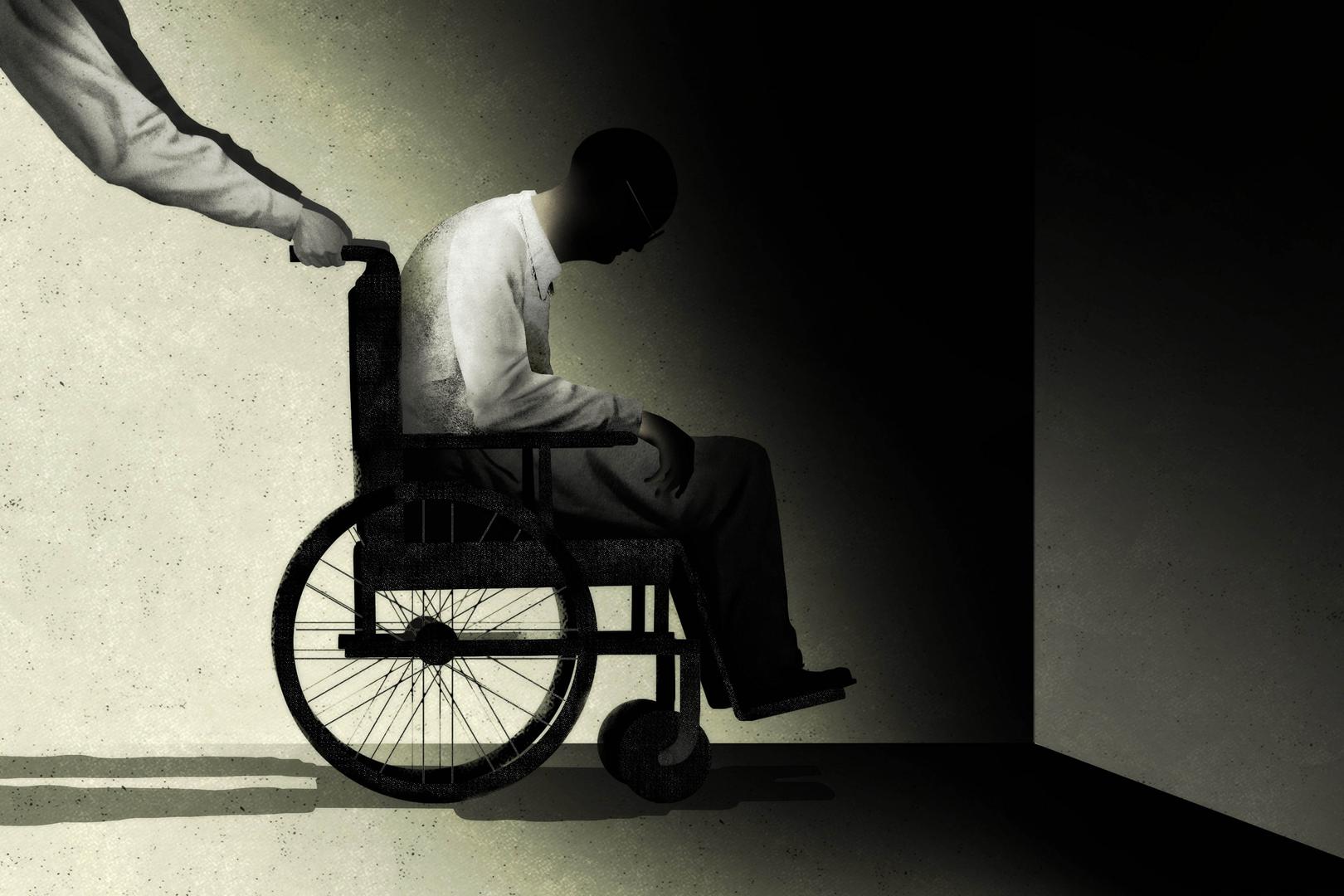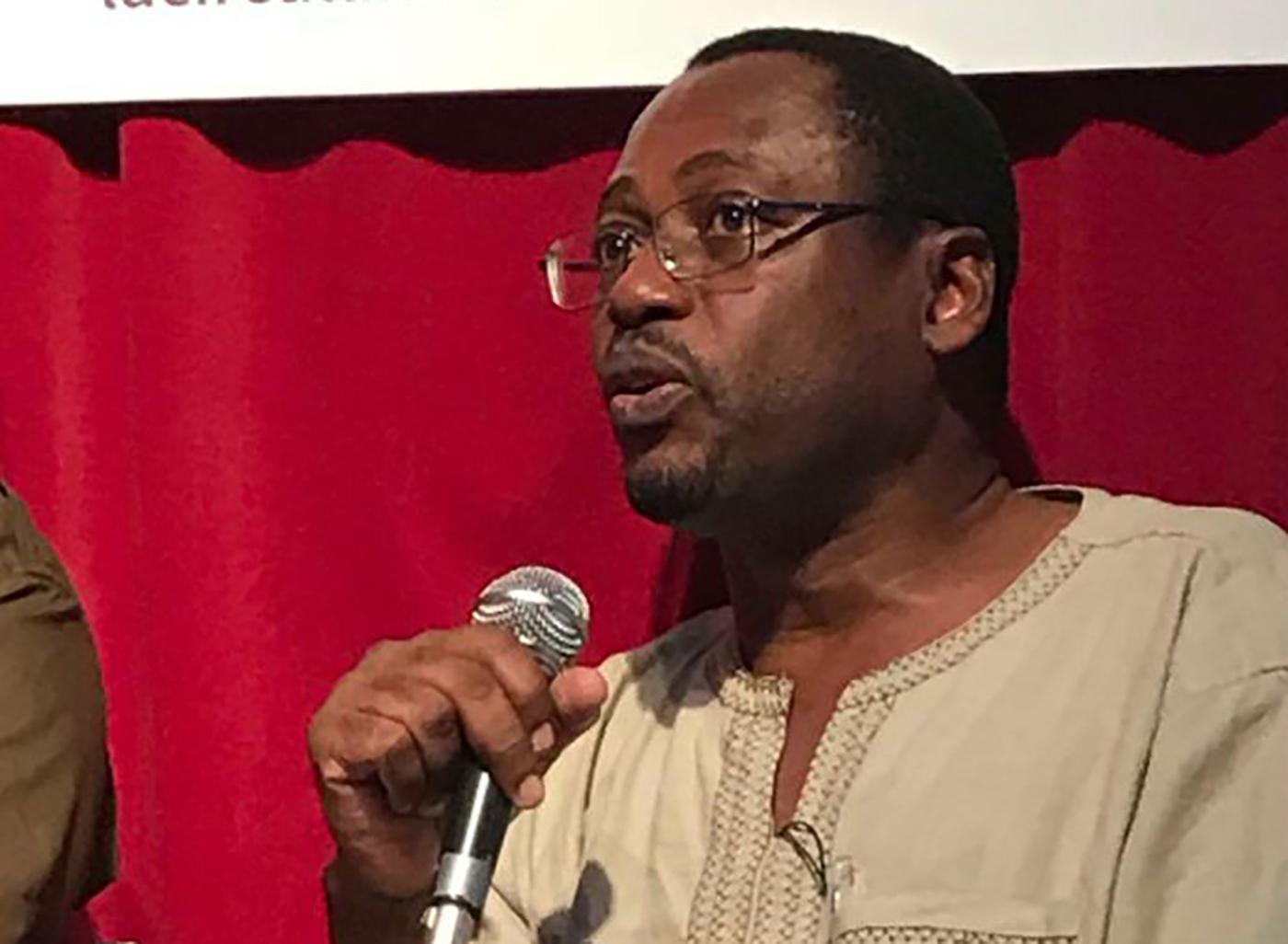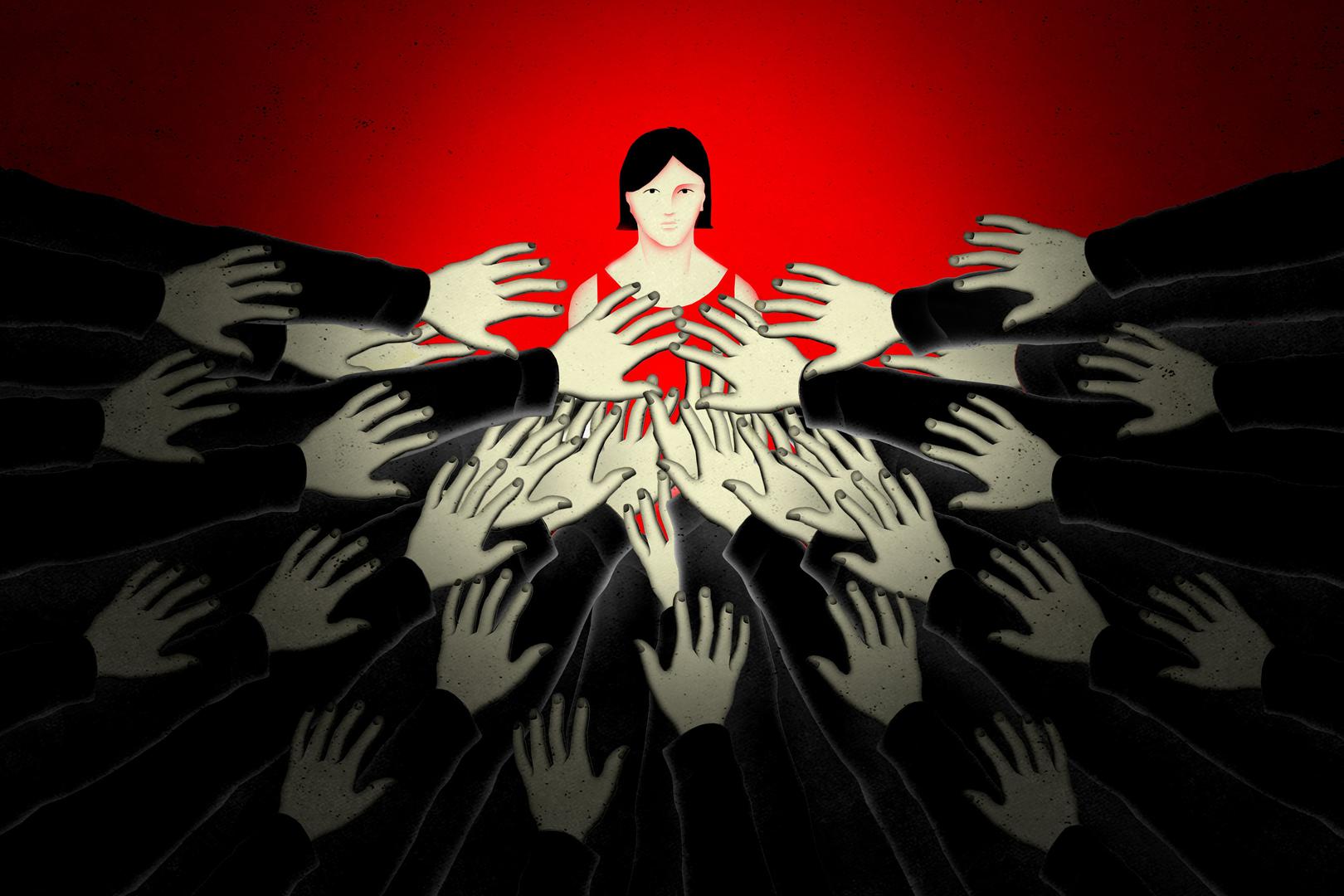Saudi Arabia came under intense criticism in 2018 following the October 2 murder of prominent Saudi journalist Jamal Khashoggi inside the Saudi consulate in Istanbul by Saudi agents. After weeks of denials and obfuscations, Saudi Arabia admitted to Khashoggi’s murder and announced the arrest of 18 individuals and firing of senior officials, but the statements appeared to be designed to insulate Crown Prince Mohammad bin Salman from further scrutiny over the murder.
Saudi authorities stepped up their arbitrary arrests, trials, and convictions of peaceful dissidents and activists in 2018, including a large-scale coordinated crackdown against the women’s rights movement beginning in May. In June, Saudi Arabia ended the long-standing ban on women driving, but authorities continued to discriminate against women and religious minorities.
Through 2018, the Saudi-led coalition continued a military campaign against the Houthi rebel group in Yemen that has included scores of unlawful airstrikes that have killed and wounded thousands of civilians.
Yemen Airstrikes and Blockade
As the leader of the coalition that began military operations against Houthi forces in Yemen on March 26, 2015, Saudi Arabia has committed numerous violations of international humanitarian law. As of August, at least 6,592 civilians had been killed and 10,471 wounded, according to the Office of the United Nations High Commissioner for Human Rights (OHCHR), although the actual civilian casualty count is likely much higher. The majority of these casualties were a result of coalition airstrikes.
Since March 2015, Human Rights Watch has documented about 90 apparently unlawful attacks by the coalition that have hit homes, markets, hospitals, schools, and mosques. Some of these attacks may amount to war crimes. An April coalition attack on a wedding killed 22 people and wounded more than 50. An August attack on a bus killed and wounded dozens of children. Saudi commanders face possible criminal liability for war crimes as a matter of command responsibility.
The conflict exacerbated an existing humanitarian crisis. The Saudi-led coalition has imposed an aerial and naval blockade since March 2015 and restricted the flow of life-saving goods and the ability for Yemenis to travel into and out of the country to varying degrees throughout the war.
The Joint Incidents Assessment Team (JIAT), which the coalition established in 2016 after evidence mounted of coalition violations of the laws of war, has so far failed even in its limited mandate to assess “claims and accidents” during coalition military operations. Its work has fallen far short of international standards regarding transparency, impartiality, and independence. As of September 2018, JIAT cleared the coalition of wrongdoing in most of the strikes investigated. There is no evidence JIAT investigated alleged abuses by coalition forces beyond unlawful airstrikes, such as mistreatment of detainees. Despite the coalition’s promises, there is no clear way for civilian victims or relatives to obtain redress from coalition forces. The coalition’s continuing unlawful airstrikes and failure to adequately investigate alleged violations puts weapons’ suppliers to the coalition at risk of complicity in future unlawful attacks.
Freedoms of Expression, Association, and Belief
Saudi authorities in 2018 intensified a coordinated crackdown on dissidents, human rights activists, and independent clerics.
On May 15, 2018, just weeks before the Saudi authorities lifted the ban on women driving on June 24, authorities launched arrests of prominent women’s rights activists and accused several of them of grave crimes like treason that appear to be directly related to their activism. By November at least nine women remain detained without charge, though some anticipated charges could carry prison terms of up to 20 years. The nine included Loujain al-Hathloul, Aziza al-Yousef, Eman al-Nafjan, Nouf Abdelaziz, Mayaa al-Zahrani, Hatoon al-Fassi, Samar Badawi, Nassema al-Sadah, and Amal al-Harbi. Human rights organizations reported in November that Saudi interrogators tortured at least four of the women, including by administering electric shocks, whipping the women on their thighs, and forcible hugging and kissing.
Saudi prosecutors escalated their longstanding campaign against dissidents in 2018 by seeking the death penalty against detainees on charges that related to nothing more than peaceful activism and dissent. By November those on trial facing the death penalty included prominent cleric Salman al-Awda, whose charges were connected to his alleged ties with the Muslim Brotherhood and public support for imprisoned dissidents, as well as Israa al-Ghomgham, a Shia activist from Saudi Arabia’s Eastern Province whose charges related to her support for and participation in protests.
Saudi Arabia continued to use counterterrorism regulations to suppress political expression and dissent. In 2017, Saudi Arabia passed a new counterterrorism law that included definitions of specific acts of terrorism and their corresponding sentencing guidelines. It included criminal penalties of 5 to 10 years in prison for portraying the king or crown prince, directly or indirectly, “in a manner that brings religion or justice into disrepute,” and criminalized a wide range of peaceful acts that bear no relation to terrorism.
Over a dozen prominent activists convicted on charges arising from their peaceful activities were serving long prison sentences. Prominent activist Waleed Abu al-Khair continued to serve a 15-year sentence that the Specialized Criminal Court imposed on him after convicting al-Khair in 2014 on charges stemming solely from his peaceful criticism in media interviews and on social media of human rights abuses.
By 2018 Saudi Arabia had jailed nearly all the founders of the banned Saudi Civil and Political Rights Association (ACPRA). Members of the group imprisoned in 2018 included Mohammad al-Bajadi and Abdulaziz al-Shubaily. In June, the authorities arrested Amal al-Harbi, the wife of imprisoned ACPRA activist Fowzan al-Harbi.
With few exceptions Saudi Arabia does not tolerate public worship by adherents of religions other than Islam and systematically discriminates against Muslim religious minorities, notably Twelver Shia and Ismailis, including in public education, the justice system, religious freedom, and employment. Government-affiliated religious authorities continued to disparage Shia and Sufi interpretations, versions, and understandings of Islam in public statements and documents.
Saudi Arabia has no written laws concerning sexual orientation or gender identity, but judges use principles of uncodified Islamic law to sanction people suspected of committing sexual relations outside marriage, including adultery, extramarital, and homosexual sex.
Criminal Justice
Saudi Arabia applies Sharia (Islamic law) as its national law. There is no formal penal code, but the government has passed some laws and regulations that subject certain broadly-defined offenses to criminal penalties. In the absence of a written penal code or narrowly-worded regulations, however, judges and prosecutors can convict people on a wide range of offenses under broad, catch-all charges such as “breaking allegiance with the ruler” or “trying to distort the reputation of the kingdom.” Detainees, including children, commonly face systematic violations of due process and fair trial rights, including arbitrary arrest.
Judges routinely sentence defendants to floggings of hundreds of lashes. Children can be tried for capital crimes and sentenced as adults if they show physical signs of puberty.
During 2018, authorities continued to detain arrested suspects for months, even years, without judicial review or prosecution. Saudi Arabia’s online prisoner database revealed in May that authorities were holding 2,305 individuals who are under investigation for more than six months without referring them to a judge, including 251 for over three years.
As of November, Ali al-Nimr, Dawoud al-Marhoun, Abdullah al-Zaher, Abdulkareem al-Hawaj, and others remained on death row for allegedly committing protest-related crimes while they were children. Saudi judges based the capital convictions primarily on confessions that the defendants retracted in court and said had been coerced, and the courts did not investigate the allegations that the confessions were obtained by torture.
According to Interior Ministry statements, Saudi Arabia executed 139 persons between January and December, mostly for murder and drug crimes. Fifty-four of those executed were convicted for non-violent drug crimes. Most executions are carried out by beheading, sometimes in public.
Women’s and Girls’ Rights
Women in Saudi Arabia face formal and informal barriers when attempting to make decisions or take action without the presence or consent of a male relative.
In 2018, Saudi Arabia’s discriminatory male guardianship system remained intact despite government pledges to abolish it. Under this system, adult women must obtain permission from a male guardian—usually a husband, father, brother, or son—to travel abroad, obtain a passport, marry, or be discharged from prison. They may be required to provide guardian consent to work or access healthcare.
Saudi authorities opened to women some sectors of work that were previously closed such as air traffic control, passport control, and as investigators in the public prosecution. In June, Saudi Arabia passed a law on sexual harassment with a sentence for offenders of up to two years imprisonment or a fine of up to 100,000 Saudi riyals (US$26,666), which can be increased in certain circumstances. However, the law also provides that anyone who falsely reported a crime of harassment or falsely claimed to have been a victim shall be sentenced to the same punishment that they alleged took place. This article as such could be used to punish victims where the authorities do not believe the crime took place and could deter victims from coming forward if they fear that authorities will not believe them.
On February 26, Saudi authorities came before the UN Committee on Discrimination against Women to defend their record on women’s rights. The committee called on Saudi Arabia to accelerate efforts to abolish the male guardianship system, adopt an anti-discrimination law, and adopt a written unified family code based on the principles of equality and non-discrimination.
During the first months of 2018 Saudi Arabia allowed women to obtain driver’s licenses and on June 24 lifted the longstanding ban on women driving. In the weeks leading up to the lifting of the ban, however, Saudi authorities carried out a wave of arrests of prominent women’s rights advocates. Authorities accused several of those detained of serious crimes, including “suspicious contact with foreign parties” under dubious legal pretenses. Government-aligned media outlets then carried out an alarming campaign against them, publishing their photos branded with the word “traitor.”
Migrant Workers
Over 12 million migrant workers fill manual, clerical, and service jobs in Saudi Arabia, constituting more than eighty percent of the private sector workforce, though government efforts to nationalize the workforce in addition to the imposition of a monthly tax on foreign workers’ dependents in mid-2017 led to an exodus of at least 667,000 migrant workers between January 2017 and July 2018.
Some migrant workers suffer abuses and exploitation, sometimes amounting to conditions of forced labor. The kafala (visa sponsorship) system ties migrant workers’ residency permits to “sponsoring” employers, whose written consent is required for workers to change employers or leave the country under normal circumstances. Some employers confiscate passports, withhold wages, and force migrants to work against their will. Saudi Arabia also imposes an exit visa requirement, forcing migrant workers to obtain permission from their employer to leave the country. Workers who leave their employer without their consent can be charged with “absconding” and face imprisonment and deportation.
In November 2017, Saudi Arabia launched a campaign to detain foreigners found in violation of existing labor, residency, or border security laws, including those without valid residency or work permits, or those found working for an employer other than their legal sponsor. On November 23, 2018, authorities announced that the campaign had netted over 2.1 million arrests, including for over 1.6 million residency law violations and over 328,000 labor law violations.
The campaign had referred over 553,000 individuals for deportation. Of the estimated 12 million migrant workers in Saudi Arabia, up to 500,000 are Ethiopian, a significant number of whom arrived after fleeing serious Ethiopian government abuses. International agencies reported that between November 2017 and June 2018 Saudi Arabia had deported at least 160,000 Ethiopians, around 10,000 individuals per week.
Saudi Arabia is not party to the 1951 Refugee Convention and does not have an asylum system under which people fearing persecution in their home country can seek protection, leading to a real risk of deporting them to harm.
Domestic workers, predominantly women, faced a range of abuses including overwork, forced confinement, non-payment of wages, food deprivation, and psychological, physical, and sexual abuse without the authorities holding their employers to account.
Key International Actors
As a party to the armed conflict in Yemen, the US provided logistical and intelligence support to Saudi-led coalition forces, including refueling coalition planes on missions in Yemen. In March, the US State Department approved a $1 billion new arms sale to Saudi Arabia, which included $670 million for anti-missile tanks, $106 million for helicopter maintenance, and $300 million for spare parts for military vehicles.
The UK government continued to back the Saudi-led coalition in 2018 and has allowed the sale of £4.6 billion ($5.9 billion) of military equipment to Saudi Arabia since the beginning of the armed conflict.
In June, the UN secretary-general released his annual “list of shame” for violations against children in armed conflict. This list included many of Yemen’s warring parties—the Houthis, Al-Qaeda in the Arabian Peninsula, pro-government militias, and Security Belt forces, but the Saudi-led coalition was treated differently. Instead, the secretary-general placed the coalition on a special list for countries that put in place “measures to improve child protection.”
Saudi Arabia faced intense scrutiny by countries across the globe for its role in the murder of prominent journalist Jamal Khashoggi, but only a handful of countries, including Germany and Switzerland, announced they would halt further arms sales. Prominent US and European officials called for an independent investigation into Khashoggi’s murder.
